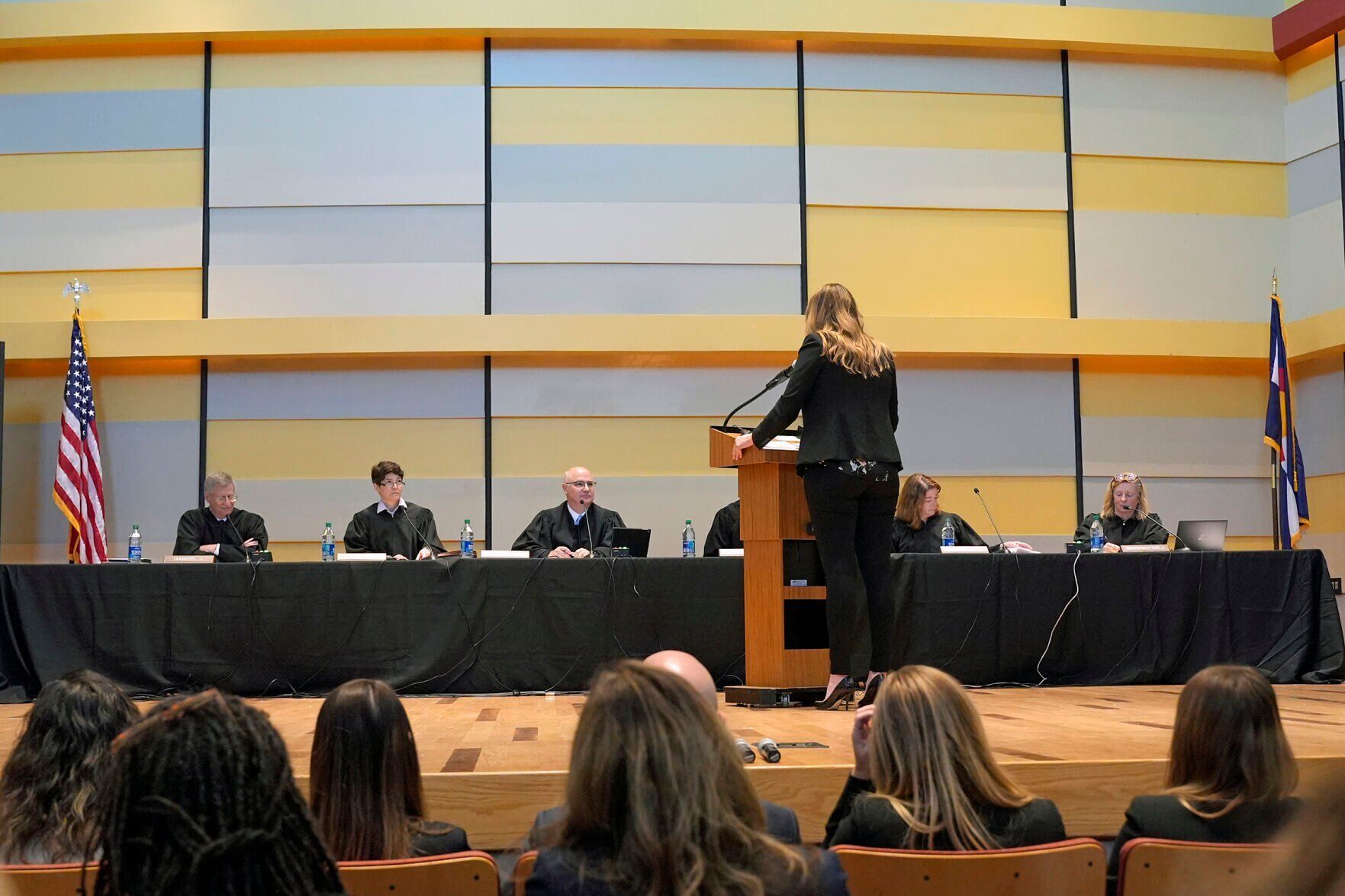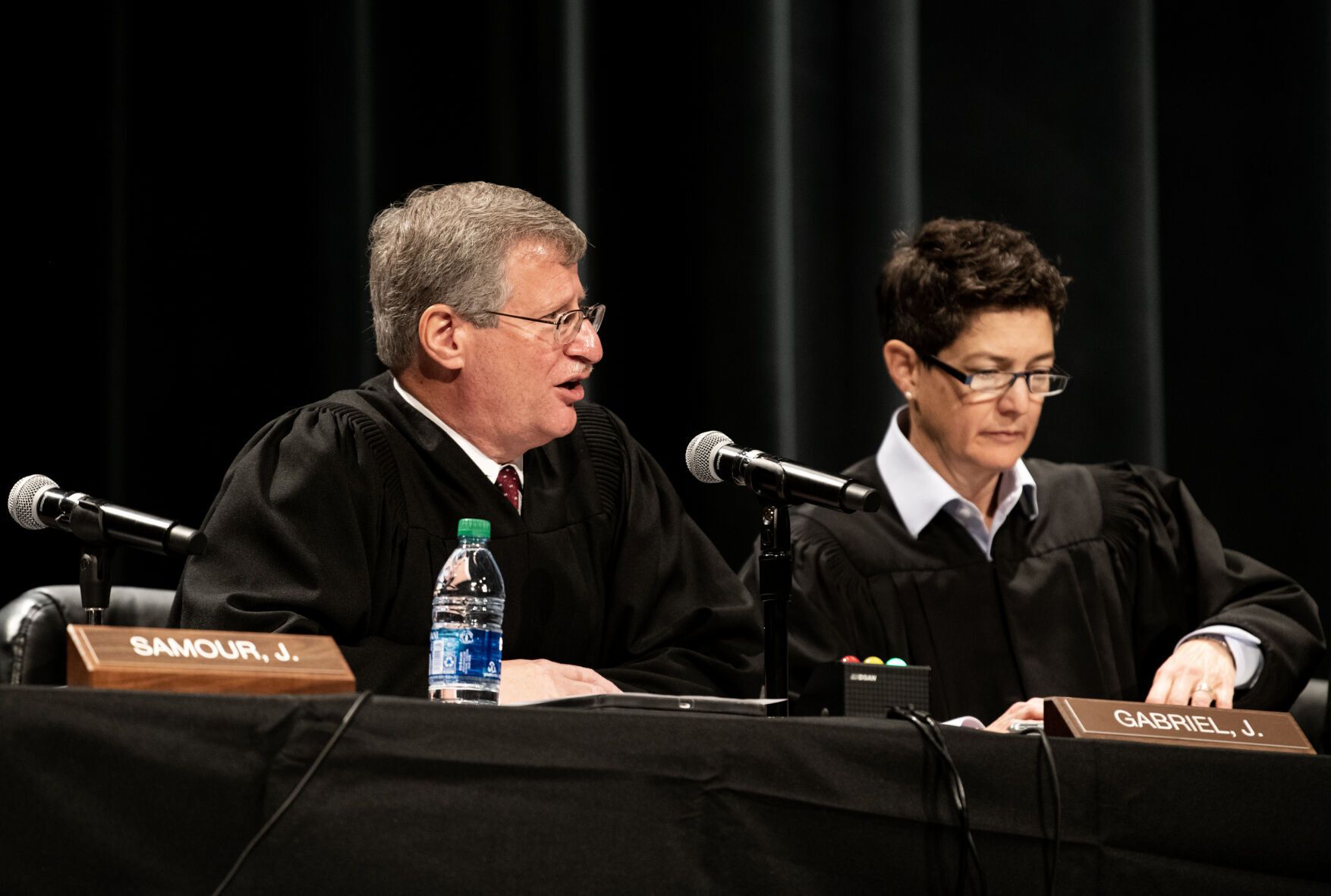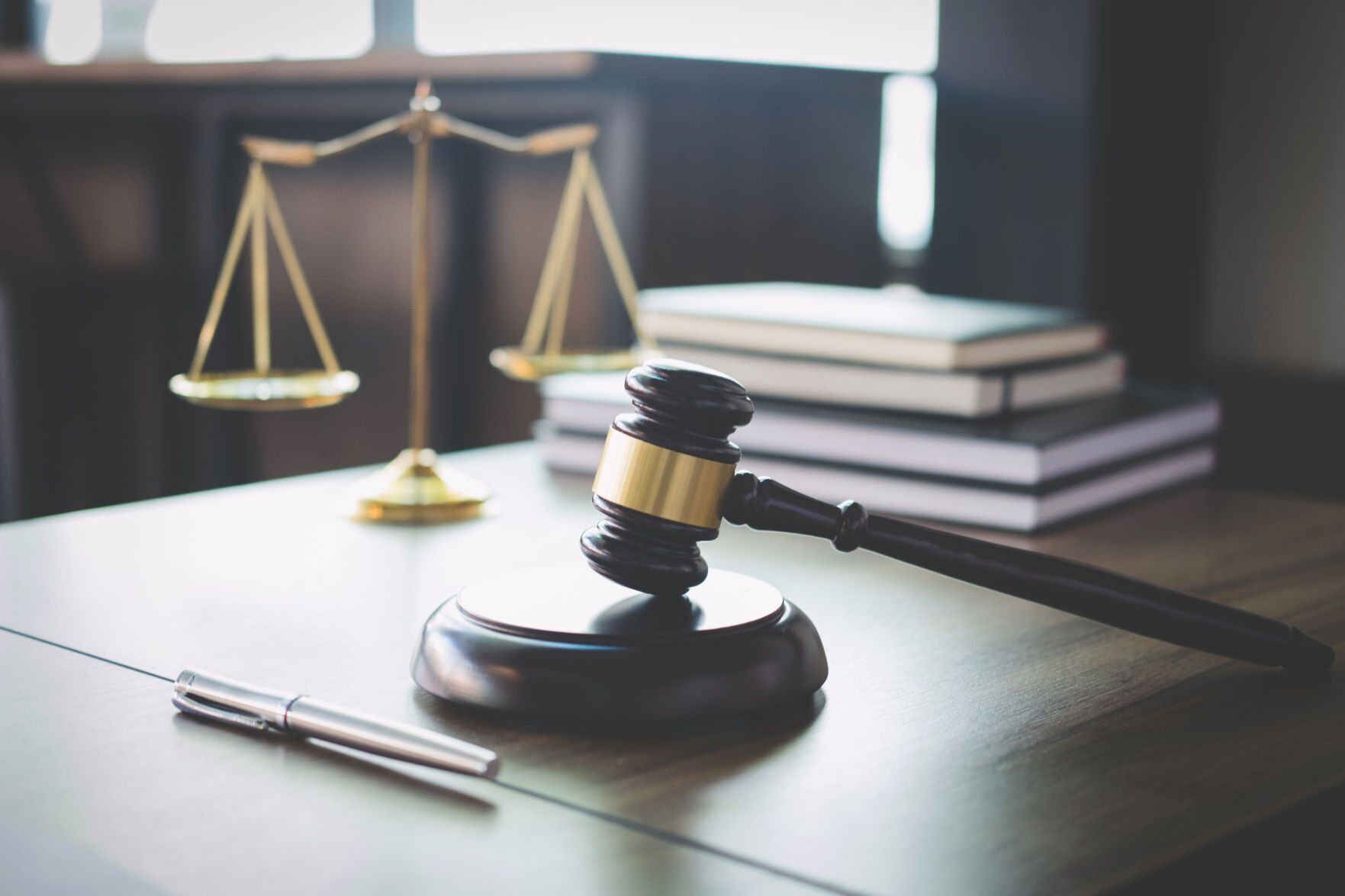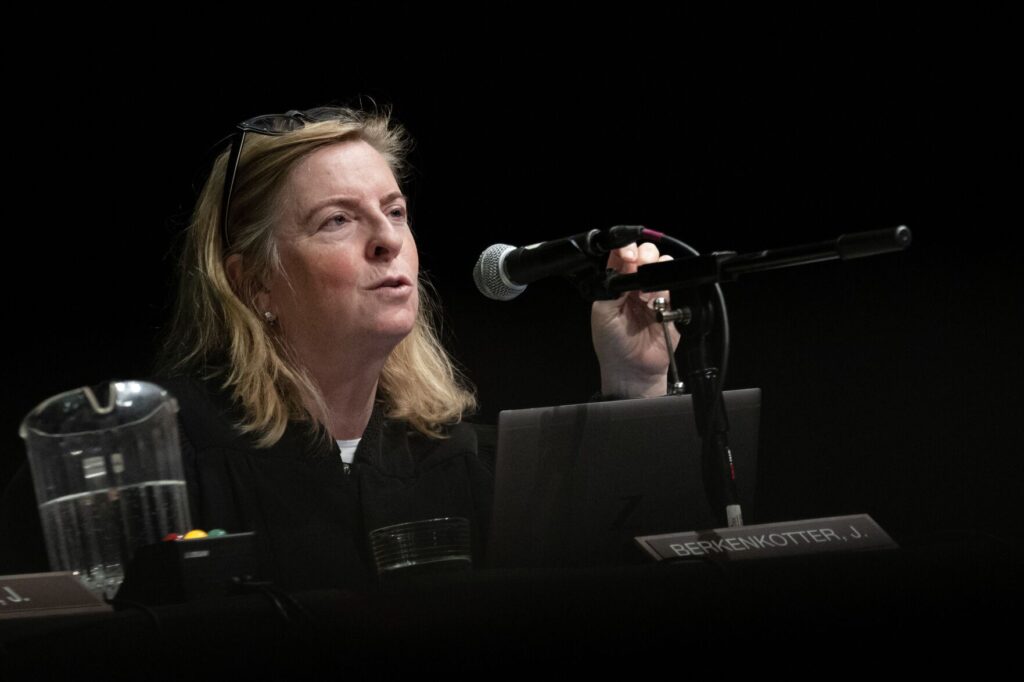Colorado justices may address whether defendants have right to review evidence when challenging convictions

The Colorado Supreme Court signaled on Tuesday that it may decide whether defendants challenging their criminal convictions due to ineffective assistance of counsel are entitled to the evidence the prosecution already handed over before trial.
An attorney representing Keevin Bell II years after his Jefferson County murder conviction was unable to obtain all the evidence his defense lawyers at trial had access to. She asked the district attorney’s office for the missing files, but the prosecutor refused to provide them — instead directing the defense to file an open records request and pay the costs.
Bell then asked the Supreme Court to intervene, noting DA offices around the state have no uniform response when postconviction defense attorneys ask the prosecution for trial-related evidence. Moreover, in a case like Bell’s that questioned whether his trial lawyers’ actions were constitutionally unreasonable, it was necessary to review the evidence available to them.
“The District Attorney’s Offices and courts that deny the defense access to Trial Discovery in postconviction proceedings are interfering with and failing to safeguard the rights of defendants to a fair and reliable determination of their postconviction claims. They are doing so, based on a serious misunderstanding of this Court’s precedent,” Bell’s lawyers argued to the Supreme Court.
In contrast to direct appeals of criminal convictions, which usually allege errors before trial, at trial or at sentencing, defendants also have the opportunity to seek post-conviction relief directly in the trial courts. That pathway, however, is only available for specific reasons, like constitutionally ineffective assistance of counsel or newly discovered evidence — assertions that would require some investigation.

Following Bell’s 2019 murder conviction, he unsuccessfully appealed. In 2024, representing himself, he filed a petition for postconviction relief, contending his trial lawyers acted unreasonably in handling certain aspects of his defense.
District Court Judge Ryan P. Loewer concluded at least one of Bell’s claims had merit. He appointed defense counsel to investigate.
In May, attorney Moorea E. Diamond emailed the DA’s office because a “significant amount of discovery” was missing from the files of Bell’s trial lawyers.
“I am aware that it is the policy of your office not to provide discovery” in postconviction cases, she wrote. But without “a complete copy of the discovery that was provided to trial counsel, we will be unable to be effective.”
Senior Deputy District Attorney Rebecca Adams responded that Diamond should file an open records request and pay the associated costs.
Diamond then asked Loewer to order the prosecution to turn over the evidence they already had provided Bell’s trial lawyers. She argued the DA’s process would cost thousands of dollars and would produce redacted files that may not be helpful.
Such disclosure is “required by the Due Process Clause and the 6th Amendment right to the effective assistance of counsel,” wrote Diamond.
Adams, in response, stated she had no further obligations to disclose evidence.
In a May 23 order, Loewer noted there was “no rule, no statute, and no inherent authority” compelling prosecutors to turn over their trial-related evidence to postconviction defense attorneys. It was possible, though, that the constitutional right to due process required disclosure.
Loewer invoked a recently issued Supreme Court decision from March, People v. Silva-Jaquez. There, the justices decided a trial judge was wrong to order the defense to disclose certain evidence to the prosecution before a postconviction hearing. Loewer quoted the opinion’s conclusion that judges “have no freestanding authority to order discovery in criminal proceedings.”
“This and this Court’s interpretation of the Supreme Court’s ruling in Silva-Jaquez in its entirety leaves no room for this Court to be able to find that Defendant in this matter, Mr. Bell, has a constitutional right to postconviction discovery,” he wrote.

Bell’s attorneys then turned to the Supreme Court, arguing Loewer misinterpreted the Silva-Jaquez decision. They pointed out the circumstances in that case — the prosecution seeking evidence from the defense — were the opposite of Bell’s scenario. Moreover, the Supreme Court’s opinion acknowledged “a defendant’s constitutional rights may nevertheless require the prosecution to disclose certain information in a post-conviction proceeding.”
“When Mr. Bell’s rights to due process and effective assistance of counsel in postconviction proceedings are considered, alongside his need for postconviction counsel to review Trial Discovery to safeguard these rights, it is clear there is constitutionally based authority for the court to order disclosure,” his lawyers wrote.
In asserting the issue had significance across many cases, they attached two decisions, issued six months apart by different Denver District Court judges, that reached opposite conclusions about whether judges have authority to order the disclosure of trial-related evidence to defendants like Bell.
On Aug. 26, the Supreme Court directed the DA’s office for Jeffco to respond to Bell’s petition.
The case is People v. Bell.












